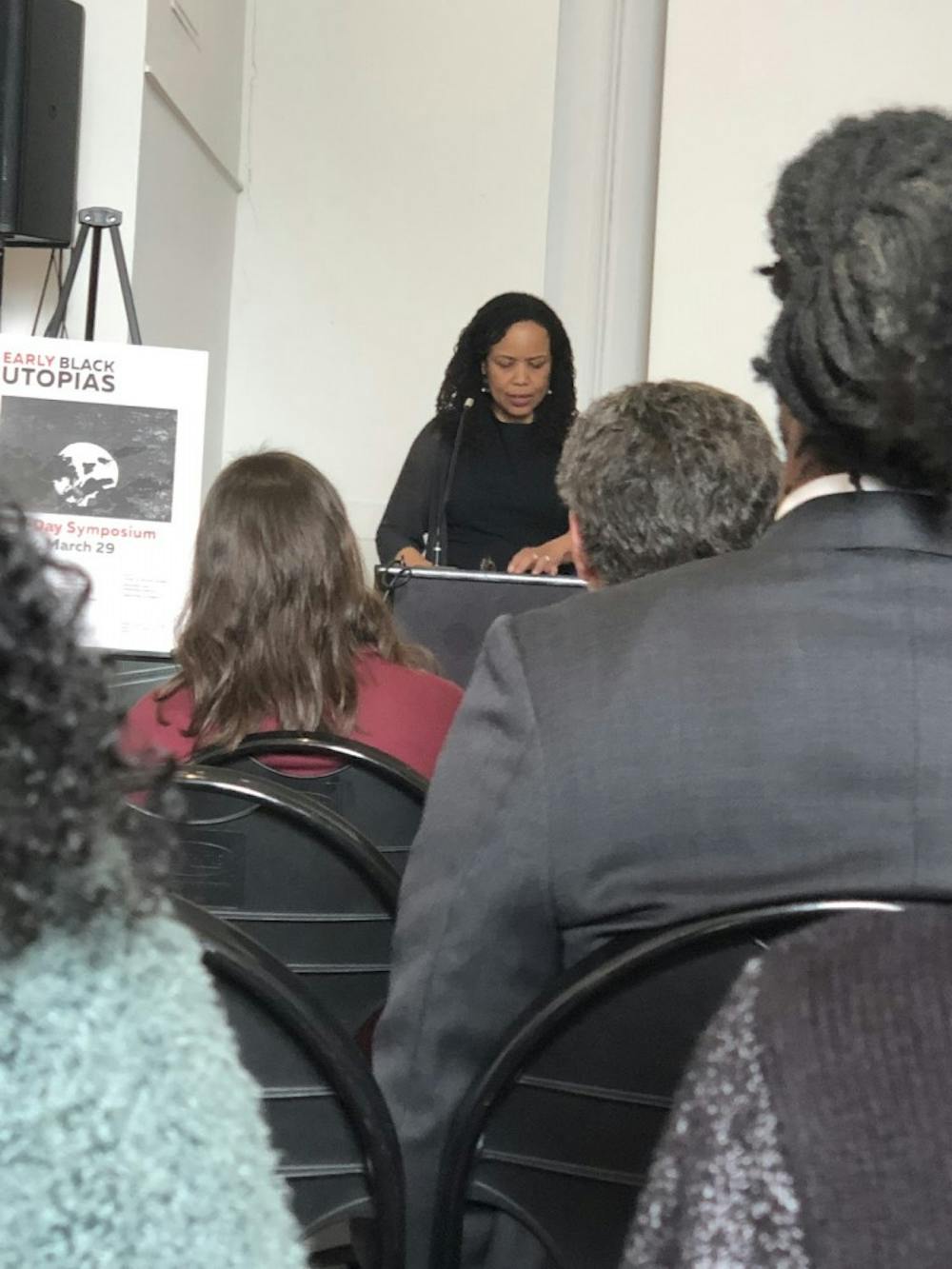The English department hosted a symposium titled “Early Black Utopias” on Friday, March 29. The symposium featured a variety of speakers who analyzed the presentation of black utopias in literature.
The symposium was divided into three sessions which each featured three to four panelists discussing the idea of black utopias by drawing on philosophy, history or literature. The keynote address was given by Saidiya Hartman, a scholar of African American literature and history, who recently published the book Wayward Lives, Beautiful Experiments: Intimate Histories of Social Upheaval.
Hartman began her talk by establishing the importance of being intellectually curious in order to imagine a better world.
“Speculative thought advances ideas of how the world might be lived in otherwise,” Hartman said. “It is an act of conjecture, supposing an imaginary case without evidence.”
She explained that speculative thought is a resource for subjugated populations.
“Wild thoughts and visions of what might be are a way of confronting years of terror and still imagining that another state of human arrangement is possible,” Hartman said. “None knew this better than the slaves — the ones first to conceive and envision freedom.”
She then spoke about the book Dark Water by W.E.B. Dubois, focusing on the short story “The Comet.” Hartman highlighted the relationship between the two main characters — Jim, an African American man, and Julia, a white woman, who are seemingly the last people left on Earth after a devastating comet hits.
“[Before the comet hits] Jim is described as outside of the world, as nothing. No one notices him,” Hartman said. “It takes the end of the world for Julia to finally recognize him as human.”
According to Hartman, this story is Dubois’ attempt to undo white supremacy by literally reshaping the world.
She then discussed her own vision of utopias.
“My own approach to utopias has been a cautious one,” Hartman said. “Like Dubois, I tend to think about moments and the compounding of historical forces that produce our now. What I find abling is to think about these moments that are a defeat of white supremacy.”
Sede Makonnen, a graduate student in the English department, attended the symposium. She noted the importance of looking back at earlier time periods and older ideas of utopia.
“This idea is usually something that gets talked about in the later 20th century, but a lot of these presentations are examining the concept starting at an earlier date, like the early 1500s,” she said.
Joseph Giardini, an English graduate student who attended the symposium, commented on the different utopias that the speakers presented throughout the day.
“There are people thinking about a single utopian framework as like a joined political project, and there are people that think about smaller more quotidienne practices as utopian aspiration,” Giardini said. “But it’s visions of what a better life might look like.”
Makonnen echoed this sentiment.
“A better life, a more perfect world, that’s sort of what the idea of a ‘black utopia’ translates to,” she said.
Nadia Nurhussein, associate professor in English and Africana Studies, helped to organize the event and discussed the purpose of symposium.
“We’ve had a full day of panels and speakers coming from all over the world to talk about the concept of black utopia,” Nurhussein said. “Currently, there’s been a lot of attention to utopian thought in the contemporary period, but not much attention is given to earlier periods.”





